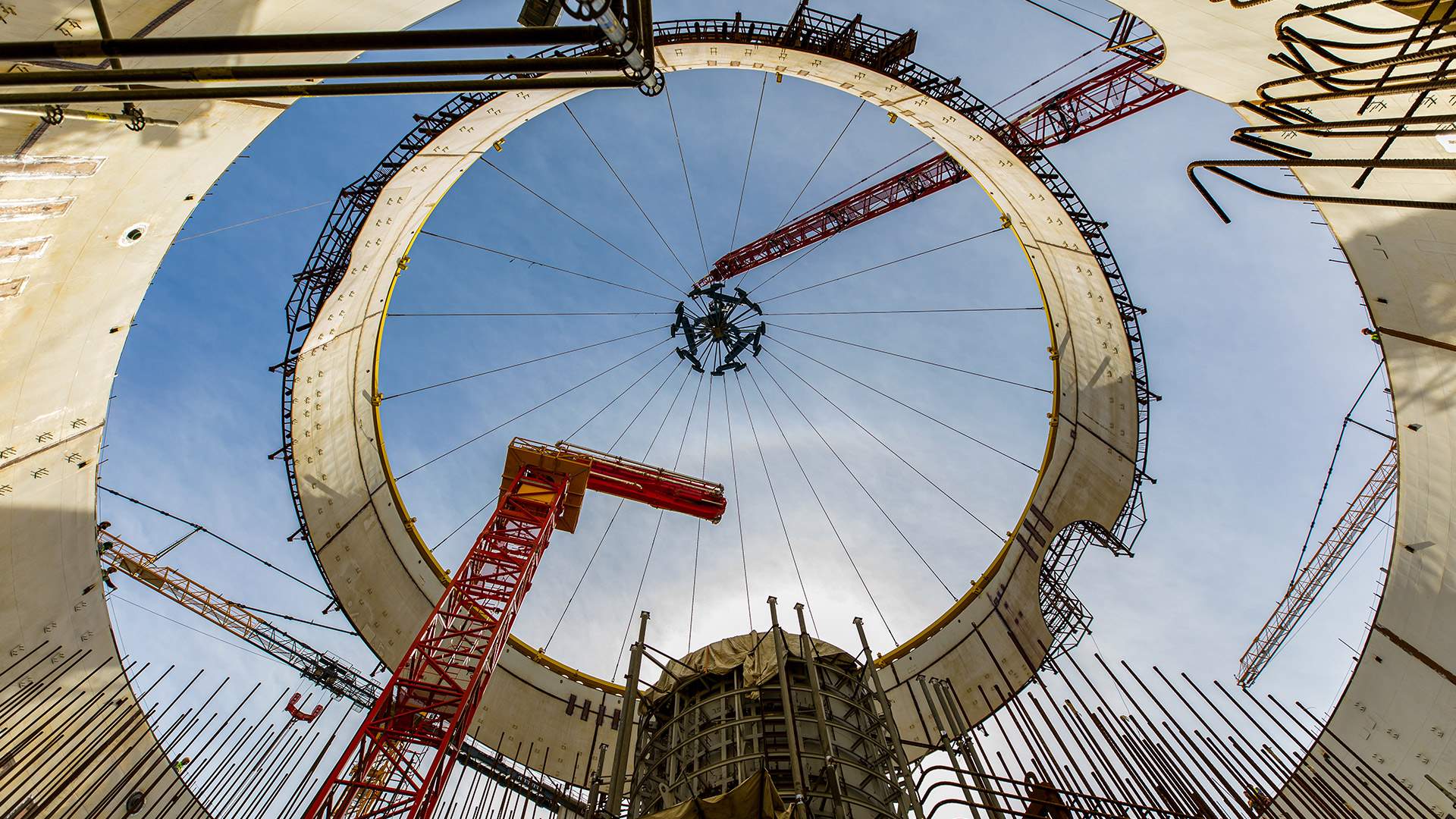Destination station: Washington worried about NPP construction in Uzbekistan

Against the backdrop of the construction of a nuclear power plant in Uzbekistan, U.S. Ambassador to the republic Jonathan Henick urged the country's authorities to "be careful" in choosing a technical partner for the first nuclear power plant. In May, Moscow and Tashkent signed an agreement on the construction of a six-block nuclear power plant. Prior to that, French President Emmanuel Macron issued a similar warning, but to Kazakhstan. Izvestia reports on the struggle for Central Asia and whether Western countries can influence the balance of power in the region.
Choose me
The warning from the United States sounded at a conference on nuclear energy.
"Of course, the choice of partners depends on Uzbekistan. We would urge to be very careful in research and technology development, and to choose technical partners that offer the best combination of technologies for the republic, have a good reputation for safety and other issues," Jonathan Henick, the new US ambassador to Uzbekistan, said at the event.
He said it is crucial for the country to get a symbiosis of renewables and nuclear power to balance the load. The head of the U.S. diplomatic mission also called for "cooperation with companies that can provide the best combination of technologies," emphasizing Washington's readiness to interact with Tashkent.
In May this year, during Russian President Vladimir Putin 's visit to Uzbekistan, an agreement was signed on the construction of a six-block low-capacity nuclear power plant in Jizzak Oblast. In early June, the first meeting on the future construction took place, in particular, representatives of Uzatom and Rosatom inspected the site where the joint project is planned to be realized.
The first unit may start operating in 2029, the total capacity of the plant will be 330 MW.
Russian First Deputy Prime Minister Denis Manturov said during the 25th meeting of the intergovernmental commission on cooperation between Russia and Uzbekistan that the project documentation for the construction of a low-capacity NPP by Russia on the territory of Uzbekistan is already being developed, and preparatory work on the site of the future plant has already begun.
Battle for the region
Central Asia is facing energy shortages amid population growth and industrial development. Russia is proposing the construction of nuclear and hydroelectric power plants in the region, arguing that its nuclear technology is the most profitable and efficient.
In response, Western countries, led by the United States, are trying to actively push the concept of green energy, emphasizing environmental safety and the use of wind and solar power plants. However, this may be quite difficult for Central Asia, as such technologies require large capital investments and constant maintenance.
In Kazakhstan, negotiations on the construction of a nuclear power plant have been going on for 10 years. A referendum was held in the country, at which the citizens of the republic supported the construction of a nuclear power plant. However, the form of the consortium and the contractor have not yet been determined. Russia, Western countries, as well as China and South Korea have expressed interest in the project.
It is especially important for Paris to get a contract for the construction of the NPP: the French energy system depends on nuclear power, and the functioning of the NPP requires uranium, the largest reserves of which Kazakhstan has.
Interfere with Moscow
The U.S. is concerned about the growing influence of Russia and China in the region, seeking to distance Central Asia from these countries, acting as a kind of alternative to Moscow and Beijing. Washington is expanding its political and economic influence on Uzbekistan through investments and the work of pro-Western NGOs. Tashkent, in turn, benefits from having an alternative to Moscow because it fits into the multi-vector policy pursued by the country's authorities.
Rustam Burnashev, a Kazakhstani political scientist, told Izvestia that Uzbekistan will not derail the nuclear power project, as it has already started its implementation jointly with Russia.
- In fact, we are talking about the fact that the project is in technical development. I do not see any probability of changing Tashkent's partner in the construction of nuclear power plants in the republic," the expert explained.
As for Kazakhstan, he said, there is still uncertainty, as Astana has said it would like to see an international consortium as a partner. Negotiations are currently underway on this topic.
- Who will be the main partner and who will be part of this consortium, if it will be formed, in relation to Kazakhstan is difficult to say, - said the specialist.
According to the analyst, it is also unreasonable to talk about the active strengthening of the United States in the region.
- For Washington, Central Asia is a peripheral zone, the key partner for the United States - Kazakhstan, it is associated with hydrocarbon resources, the other countries are situational partners, - said Burnashev.
The expert believes that the policy of the United States is highly dependent on the situation and the position of the presidential administration.
- Biden showed that Central Asia was given very little attention. Even in connection with the withdrawal of U.S. troops, it did not grow, but, on the contrary, decreased even more. Under Trump, I don't see any tendencies to increase US influence in Central Asia, but there is a certain amount of unpredictability and uncertainty there," the political scientist emphasized.
In his opinion, it is first necessary to understand what initiatives Trump will take in the post-Soviet space and whether there will be any changes in this direction.
Переведено сервисом «Яндекс Переводчик»





